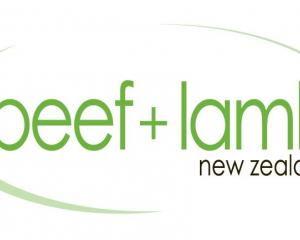
The couple headlined the workshop "How to be the best boss" at the South Island Dairy Event in Invercargill last week.
Mrs du Plessis said the couple moved from South Africa to New Zealand in 2001 and knew nothing about farming.
They were once the ones looking for jobs to progress in the industry.
"We know how we felt when we went for job interviews."
They have been dairy farming in Dipton since 2008.
Their business, Mosa Farming, runs two farm operations about 20km apart — 50/50 sharemilking 730 cows and contract milking 630 cows.
The couple won the New Zealand Dairy Industry Awards share farmer of the year category in 2010.
Their staff nominated them for the PaySauce Best Boss Award, which they won in 2022.
That same year they also won the Small Business Recognition Award at the Primary Industries Good Employer Awards.
Mrs du Plessis said their business needed motivated staff and they needed to retain them.
"So we’ve put a lot of things in place to make that happen."
Before employing staff, she checked their references.
She encouraged anyone looking for work in the dairy industry to ask potential employers for references of former staff for them to contact.
"You shouldn’t be scared to ask."

Mr du Plessis said they aimed to run an efficient business, which would help themselves and their staff progress in the industry.
Another priority was allowing a balance so everyone had time to spend with family and friends and no-one got burnt out.
Each farm has three fulltime staff and another person as a relief milker and calf rearers.
Five of their six staff were younger than 30 and did not have a farming background.
All of the staff were migrants.
The immigration fees of the staff were paid for and reimbursed in time.
Mrs du Plessis said if their staff wanted to become residents, they would pay the fees for them to do so, provided a 12-month work commitment could be made.
"It helps them and helps us — it would have cost us more if we would have had to find staff."
Before the new staff arrive in New Zealand, the du Plessis furnished a house, including a dresser containing Mosa Farming-branded work gear and a pantry containing food.
"They feel like someone is going to look after them."
The new staff were given a work buddy, someone who did a similar job.
To avoid future problems, there must be a contract and a job description .
Policies, procedures and job expecations must be clear, she said.
An expectation was a farm bike must be cleaned before they left for their rostered days off.
Providing good gear and warm and dry accommodation was a priority.
Mr du Plessis said when employing staff, the most important attributes in an employee was turning up for work and having the right attitude.
"Attitude is not No1. You can have all the attitude in the world, but if you don’t turn up, it doesn’t mean anything."
Someone with a willingness to learn could be taught the necessary skills to succeed in the industry.
Staff were given pies and soup during calving and a cooked dinner after the cows were dried off.
Staff bonding activities included curling and dinner out.
"It’ll probably cost us $1000."
The investment was worth it to retain staff.
All staff were given a credit at a local butcher to buy meat during the year.
Staff wages were fair and raised to cover inflation.
The right amount of training of staff ensured they were worth whatever they were paid.
"If you don’t train, don’t complain."
Staff were encouraged to enrol for agricultural training courses and fees were paid back once a qualification was achieved.
Mrs du Plessis said workers loved structure and routine.
"They want to know what they are doing and when they are doing it."
Technology, such as Facebook Messenger, could be used to communicate with staff and was a good way to share photos to demonstrate best practice.
Staff were given a day off on their birthday and a present.
The biggest part of her job was keeping her staff happy, she said.
"Look after them and say thank you, they just want to feel appreciated, like all of us."
The dairy sector had a staff shortage, so any existing staff needed to be looked after to ensure they were retained as part of your team.
She thought of the word team as an acronym. "Together everyone achieves more."
shawn.mcavinue@alliedpress.co.nz















